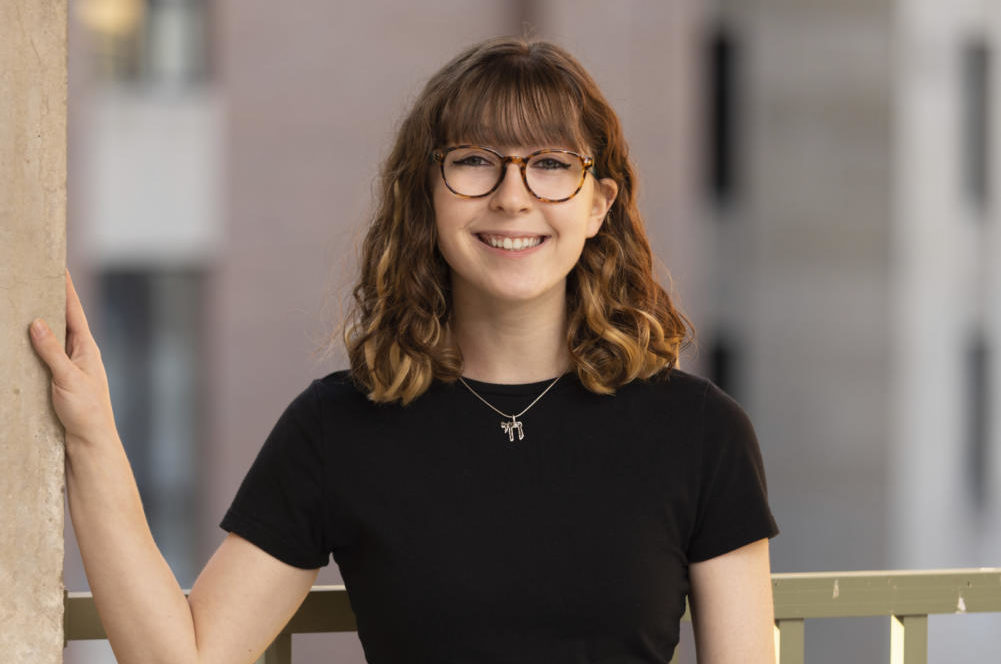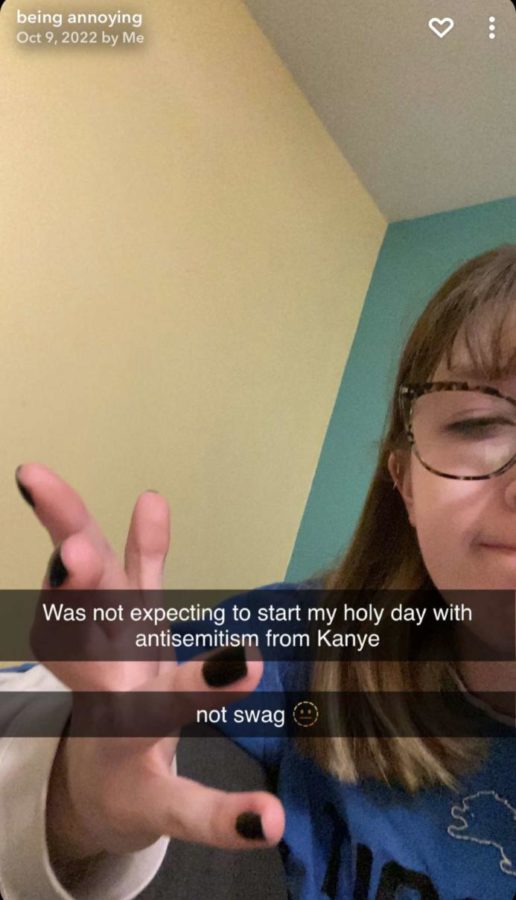Senior Mina Koffron gives insight about the adversity and exclusion faced by Jewish students
February 17, 2023
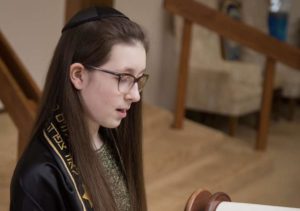
“Religion is valuable for some as it provides a sense of security and comfort, an assurance in one’s values and identity. Some people find that value in loving Jesus; I find that value in Judaism,” senior Minaleah (Koffron) shares, glowing. “I love every single thing about Judaism; it’s as essential to me as the oxygen I breathe.”
Even though her faith is a guiding light and a bright spot in her life, as one of the few Jewish students at Portage Northern, she has come to understand that being a religious minority comes with unique experiences and challenges, not just in the world at large, but at school, too.
Missing school events
Living a Jewish life involves living in accordance with cultural obligations and laws that aren’t shared by her peers. Belonging to a minority religion yields different experiences. Over the years, Mina has become accustomed to not being able to do the same activities as her peers. For example, Mina couldn’t attend last year’s prom because it was on the first night of Pesach (פסח), which is the Jewish holiday known to Americans as Passover. Because Mina was observing her faith tradition, she was unable to attend the dance. “School activities are really great to be involved in and so many amazing memories are created because of them,” Mina explains. “Having to miss out just because I’m Jewish can really stink.”
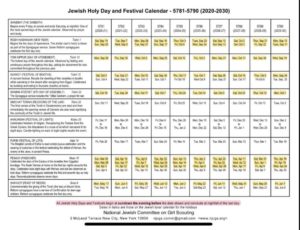
This is not the only instance of school events being planned without regard to Jewish practice. From sunset on Friday to sunset on Saturday is Shabbat (שבת), a time of rest for the Jewish people. During that time, Mina does not work, go to business establishments, use electronics, etc. One issue is that many school dances and other important athletic events are held during this time, including tonight’s Winterfest Glow Crazy dance.
“Because Jewish students are a minority, numerous things are scheduled on Jewish holy days without regard to the exclusionary aspects of it,” she explains. “If people simply looked at a calendar and went, ‘oh this day is a Jewish holy day’ and didn’t plan important things on those days, that would be greatly appreciated.”
Mina is currently navigating one of the largest scheduling conflicts of her high school career: graduation, which is scheduled on May 26th, the Jewish holy day of Shavuot. Her family has met with representatives at the building and district level in addition to leadership at Miller Auditorium, where graduation is held, to discuss moving the date. She has also taken the issue to the student body, giving up her own lunchtime to spread awareness and share a petition with her peers.
Added academic pressure
Overlooking Jewish practice is present in more than just school events. Teachers often assign homework with the assumption that students have a two-day weekend to complete it. With Shabbat, Mina has only Sunday. She has a rigorous schedule of senior classes, taking IB Spanish, IB Psychology, IB English, and AP statistics, and the work in those classes piles up quickly over the weekend. “I only have one day over the weekend to complete everything,” she shares. “ So I need to be extremely efficient, which is stressful.”
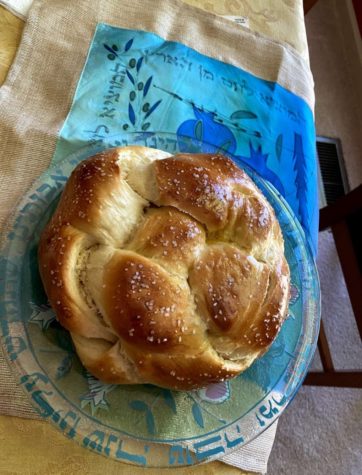
(Photo curtesy of Minaleah Koffron)
On top of the reduced weekend time for homework, Mina also misses several days of school per year to observe Jewish holy days. Depending on the day, it is intended to be a time of renewal, freedom, forgiveness, or joy, but while each day symbolizes something different, what happens afterward is always the same. “Every holy day of mine is followed by immense stress,” she confesses. “My mental health plummets at the start of every school year due to the difficulty of keeping up despite my absences.”
Mina carries the weight of the added stress not just because she has high standards for herself, but because she understands the greater cultural and religious implications of her education. Jewish people worldwide have overcome immense obstacles throughout history to be seen as equals in the professional realm. This, among other factors, has led to a great emphasis on education within the faith.
“I would not really be doing my family and my ancestors justice, as silly as it sounds, if I decided to take easy classes just because being a minority student can be a bit hard,” Mina reflects. “And in the grand scheme of things, I am really privileged to be a Jew in the place and time that I am.”
Living in a hostile world
As significant as they are, the challenges in the classroom pale in comparison to the stressors of simply living in a world that is becoming increasingly divided. Anti-semitism is an issue that the Jewish community has long faced, but modern threats of violence and several hate-motivated shootings in synagogues across the country this year bring tension to times that are supposed to be joyful. Before High Holy day season, classes are offered through the synagogue that cover what to do if someone comes in with the intent to kill. “Its a heart-wrenching reminder of the state of the nation in which we live,” Mina says. “My thoughts drift to wonder, when will it be my synagogue?”
On High Holy days, there is always a police officer watching over the synagogue’s doors, looking out for a potential active shooter. It is imperative that the synagogue doors remain closed at all times, ensuring that only those with approved access can come in: synagogue members have an ID card to swipe at the door in order to gain entry. “Your first image as you go into a Holy day services holiday celebration is protection and security,” Mina explains. “It’s a reminder that there is a chance, a frightening chance.”
This year on Rosh Hashana (ראש השנה), when Mina arrived at her synagogue, there was no police officer – and the doors were wide open. Instead of feeling an overwhelming sense of peace, she was at first confused and then fearful. For her, the open door wasn’t a welcoming symbol, it was the perfect opportunity for what she feared most to come true.
“On one of the holiest days of the year, I want to focus on the holy aspects. I want to feel the great spiritual connection that I adore, and spend time with my Jewish community,” she shares. “Instead, my thoughts shift to imagining someone coming through those open doors – doors that shouldn’t be open – and releasing fire.”
Unwavering faith

Despite how heavy these worries can be, Mina still walks the halls with a smile on her face and kindness in her heart. “Throughout my life it’s been emphasized, largely because of being Jewish, how hate is dangerous and being mean and oppressive is wrong,” she says.
Judaism holds that people are worthy of respect and kindness. Hate and discrimination are things that destroy: Jews are built to heal. “It’s who I am, and it’s what I love,” she says. “Does being a minority come with some icky stuff? Yes. Does that hinder my love for my religion? Not at all.”
In the face of adversity, Mina remains not just steadfastly, but unapologetically, Jewish.
